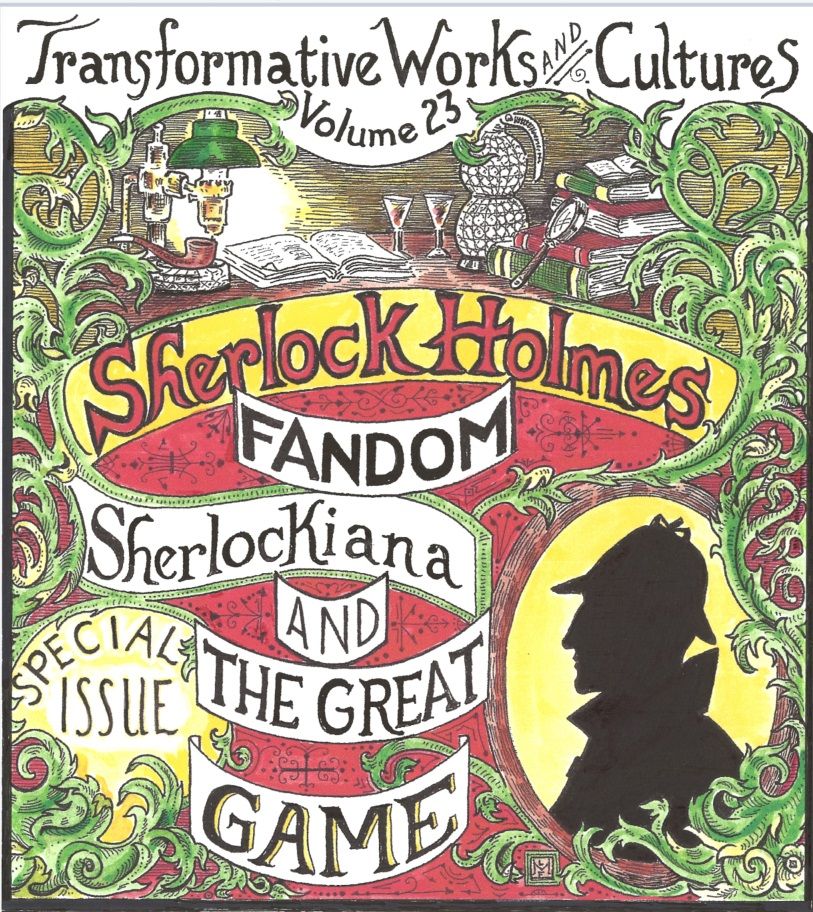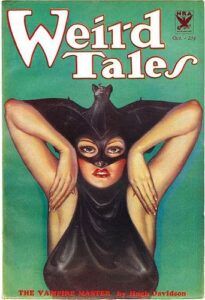Transformative Works and Cultures (TWC) publishes articles that examine media studies as well as fandom and fan works. While they are at it, the journal really challenges what is and is not academic writing. As an English master’s student in the academy, TWC is who I want to be when I grow up. It might not be a big surprise that TWC is run by the Organization for Transformative Works (OTW), a nonprofit org run by fans, for fans. OTW is explicitly interested in “providing access to and preserving the history of fan works and fan culture in its myriad forms. We believe that fan works are transformative and that transformative works are legitimate.” They support a range of free fan sites like AO3 (known for their fan fiction), Legal Advocacy, Fanlore, Open Doors, and yes, TWC. The organization is an incredibly efficient non-profit that helps monitor and curate fandom-related content available for other fans for free. From early zines in the 1960s, fans have created their own media about fan properties distributed to other fans. Unsurprisingly, Fanlore has a wonderful history of the creation and distribution history of fanzines in the 1900s. Fans have been shipping and writing about their ships for a long, long time. It was typical to find fanzines that offered nonfiction fandom articles. Other zines shared fan fiction, fan art, and other fan works. By-fan-for-fan content is not new. It is only natural to assume that moving into the internet era, fandom and the study of fandom would take place online.
The first volume TWC published was in 2008, and they have been in operation since then. Their articles consistently speak to pushing discourse boundaries in fandom. They also publish articles looking at the intersectionality of queer and/or BIPOC fans in articles. I have to mention Poe Johnson’s “Transformative racism: The black body in fan works,” Ebony Elizabeth Thomas’s “Race, storying, and restorying: What can we learn from black fans?,” Jessica Pruett’s “Lesbian fandom remakes the boy band,” and Edmond Ernest dit Alban’s “I also eat the straights: Male heterosexual fandoms writing LGBTQ+ media history in Japan.” TWC has also been known to publish articles that look at old, specific fan communities and fan works. Erica Haugtvedt’s “Victorian penny press plagiarisms as transmedia storytelling,” Andrew Crome’s “Considering eighteenth-century prophecy as transformative work,” and Ellis Khachidze’s “Women’s fan writing and transformative works in eleventh-century Japan” all detail deep fan histories. The articles are, quite frankly, wonderful. I will readily admit that the work I tend to do in English academic spaces leans towards TWC‘s bread and butter. I’ve researched the popular, the lowbrow, or whatever word you would like to use for media without much scholarly debate — think YA books, fantasy novels, and Weird Tales magazine short stories. I am interested in the work TWC is doing because it is a growing field that still needs further exploration. Today, we are just looking at TWC as a primary example, but I would be remiss to not mention the fact that the journal is in communication with other academic scholars. TWC is part of a larger movement to study, research, and preserve the development of fandom. So, in the fashion of the academy (and honestly traditional story structure), we loop back around to my claim. Academic fandom journals like AO3’s Transformative Works and Cultures are important. They are an expansion of existing fan discussion from communities that I am sure stretch back further than 1900s fanzines. It is important that academic fandom journals fill a gap in humanities research — that gap being their examination of not only new media, but the media fans create about that media. Finally, it is important to treat our fans and our fandoms with sincerity. Fandom will grow and change in odd ways whether or not we are looking closely, so someone has to pay attention to it. As a fan and researcher, I am also biased. But still, isn’t TWC an odd little piece of the internet you want to know more about?

